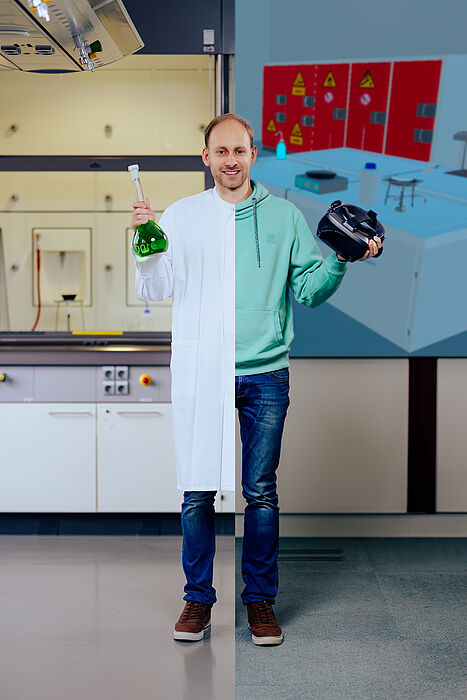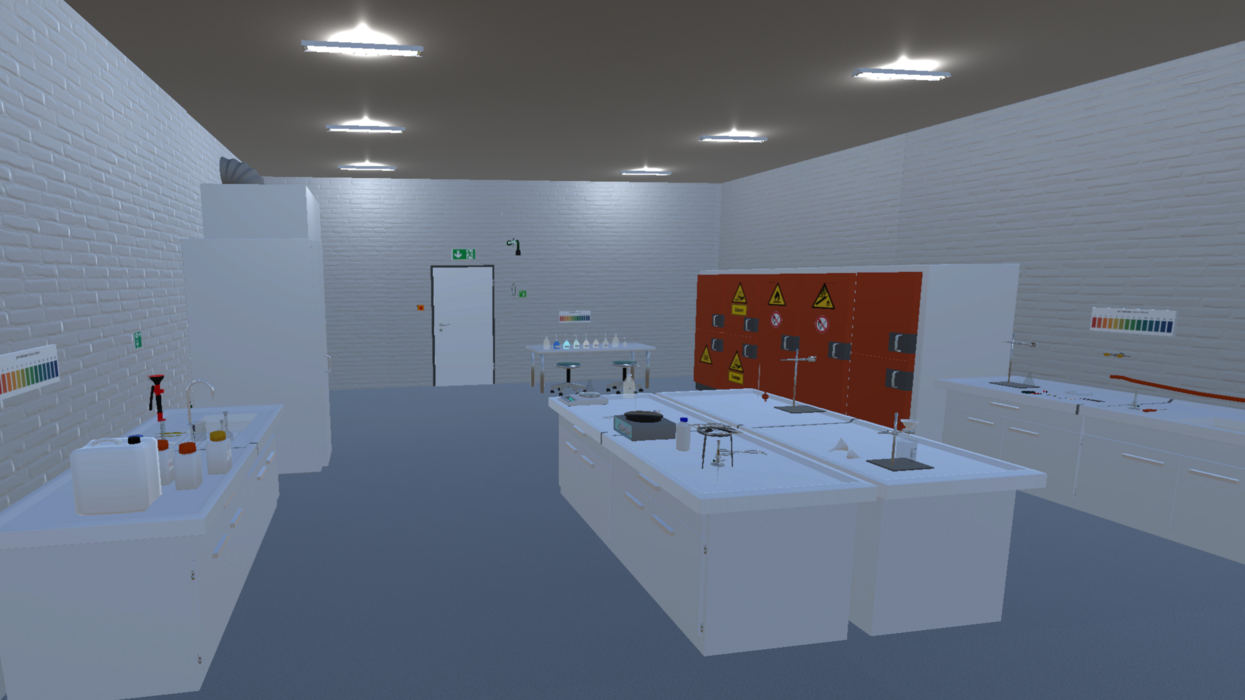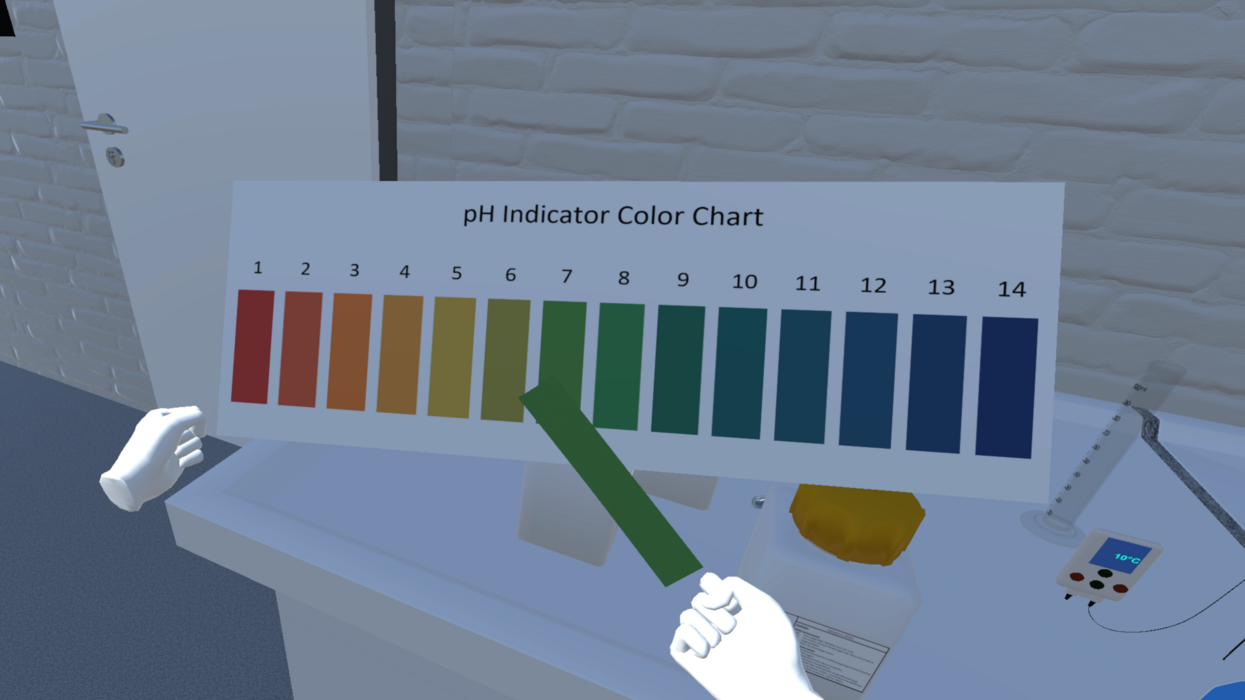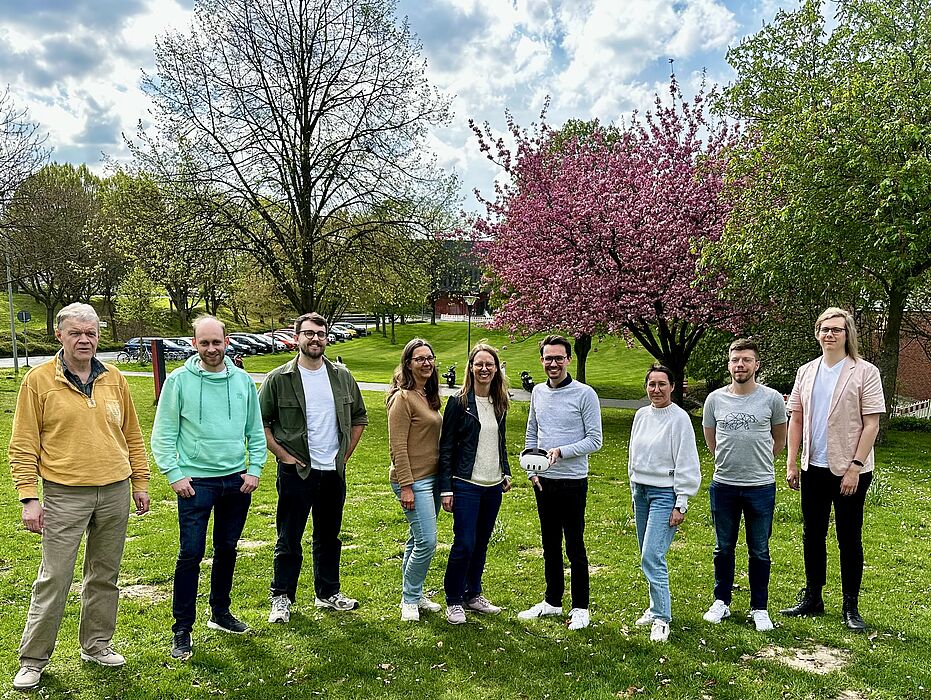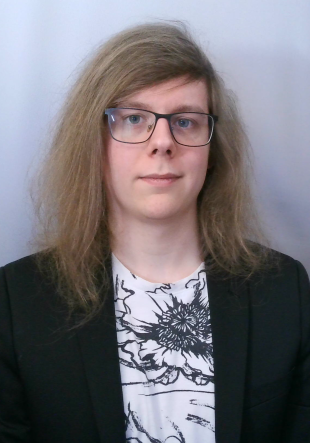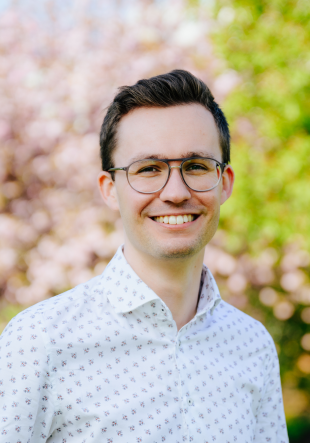With the new “VRLabTutor” project, Paderborn University is adding an AI-based assistance function to its successful virtual reality chemistry laboratory “VirtuChemLab” on 1 April 2025. The aim of the project is to provide students with even more targeted support for experiments in a virtual space – personalised, location-independent and practical. The project is funded with over 360,000 euros as part of the “FREIRAUM 2025” funding line from the Stiftung Innovation in der Hochschullehre (Foundation for Innovation in University Teaching).
VirtuChemLab: a digital chemistry lab made in Paderborn
The existing virtual laboratory “VirtuChemLab” is a virtual reality application that is being developed at Paderborn University by computer science students for students of all disciplines. The aim of the software in the specific application area of chemistry is to offer students of chemistry-related degree programmes a time- and location-independent opportunity to practise the procedures required in the chemistry laboratory.
The project is implemented by Master’s students enrolled in the computer science and computer engineering degree programmes at Paderborn University. The students design and implement the virtual laboratory as part of their curriculum in project groups, which are supervised by the computer science research assistants Dr. Matthias Fischer, André Graute and Jan-Luca Hansel from the “Theory of Distributed Systems” (formerly “Algorithms and Complexity”) research group. It is used via virtual reality headsets.
Interdisciplinary networking: VR@UPB as an infrastructure for digital teaching
The development of the VirtuChemLab is part of the interdisciplinary project “VR@UPB”, which aims to establish a virtual reality infrastructure at Paderborn University. The initiative is the brainchild of Prof. Dr. Wolfgang Bremser from the Chair of “Coatings, Materials & Polymers”. Its aim is the widespread and sustainable use of virtual reality technologies in almost all areas of scientific education. The project is financed with quality improvement funds (“Qualitätsverbesserungsmittel” , QVM) from the state of North Rhine-Westphalia totalling over 900,000 euros over a period of three years (2023–2026).
“VR@UPB” will therefore be implemented from the outset together with partners from various disciplines: chemistry education (Prof. Dr. Sabine Fechner), chemistry (Prof. Dr. Wolfgang Bremser), computer science (Prof. Dr. Friedhelm Meyer auf der Heide), cultural studies (Prof. Dr. Christoph Ehland) and media studies (Prof. Dr. Ralf Adelmann). The Central IT and Media Services (“Zentrum für Informations- und Medientechnische Dienste”, ZIM, Prof. Dr. Gudrun Oevel) is also involved as a project partner in order to ensure the long-term provision and interdisciplinary use of the developed infrastructure. Following the retirement of Prof. Dr. Friedhelm Meyer auf der Heide, the project is continued by the Department of Computer Science through Prof. Dr. Christian Scheideler’s Chair of “Theory of Distributed Systems”.
Origins in the DigiChemLab: pioneering work in virtual space
The forerunner of “VR@UPB” lies in the “DigiChemLab” project, which was funded by the DAAD with around 170,000 euros in 2020–2021. This project was also the result of an initiative by Prof. Dr. Wolfgang Bremser and Dr. Hoang Trang Tran-Thien, who were both committed to the use of virtual reality in teaching at an early stage. The project partners were Prof. Dr. Sabine Fechner and Dr. Sebastian Habig (chemistry education), Prof. Dr. Wolfgang Bremser and Dr. Hoang Trang Tran-Thien (chemistry) and Prof. Dr. Friedhelm Meyer auf der Heide (computer science).
Chinese partner universities were also involved as part of German–Chinese exchange programmes: Prof. Zhibo Li, Prof. Wende Tian, and Prof. Zhijiang Yang from Qingdao University of Science and Technology (QUST, Chemistry Material Science) and Prof. Baoquan Chen and Prof. Yunhai Wang from Shandong University (SDU, Computer Science). In this project, the first foundations were laid for a VR environment in which chemical experiments could be carried out in a virtual laboratory using VR headsets.
VRLabTutor: A virtual tutor for the chemistry lab – Paderborn University expands VirtuChemLab with AI-supported assistant
As part of the recently launched VRLabTutor project, an AI-based tutoring system is being developed and integrated into the existing VirtuChemLab. The aim is to create a virtual assistant in avatar form that gives students individual, direct feedback on their lab activities, answers questions about conducted experiments and can point out potentially dangerous behaviour. “It is precisely this form of feedback that we have been lacking in the VirtuChemLab until now – from a didactic point of view, it is of great importance,” explains Hendrik Peeters, research assistant in the “Chemistry Education” research group under the supervision of Prof. Dr. Sabine Fechner. Current language models from computer science are used for the realisation. A particular focus is on explainable artificial intelligence (XAI) techniques to ensure that the learning content is conveyed correctly and that no safety-relevant misinformation is generated. “Raising students’ awareness of potential hazards in the real laboratory is very important to us. At the same time, we want to take away their fear of laboratory practice by working in a virtual space,” says Prof. Dr. Sabine Fechner.
By analysing user behaviour, the virtual tutor should be able to adapt their feedback individually in the future. For example, if the system recognises that a person is having difficulties with the correct sequence for setting up a gas burner, the tutor can provide specific step-by-step instructions. Others who have already mastered the use of the burner do not receive this instruction – the system thus adapts to the respective learning level.
The close interdisciplinary collaboration between the “Theory of Distributed Systems” research group and the Fechner research group in chemistry education, which was already successful with the VirtuChemLab, is continued for the VRLabTutor project. In addition to didactic and chemical counselling, the computer science students working in the project groups benefit from the opportunity to carry out practical user tests with chemistry students in particular. “In the project groups, we like to give students the space to develop their own ideas and solutions,” explains Jan-Luca Hansel, “I’m already excited to see which ideas the students will find exciting.” “In professional practice, you often develop software for non-specialist users. The ability to understand different perspectives and still come to clear agreements is something our students can practice realistically in cooperation with chemistry education,“ emphasises Dr. Matthias Fischer, who heads the project from the computer science side.
The Higher Education Development Office at Paderborn University also supports the project in terms of university didactics. It supports the transfer of the project results to other subjects and teaching contexts as well as their didactic preparation. “A central aspect of our work is to actively evaluate the transfer and to promote it in a targeted manner by establishing a cross-faculty network,” explains Iris Neiske from the staff unit.
By March 2027, the VRLabTutor project – as an extension of VirtuChemLab – will be evaluated and successively integrated into existing courses and learning programmes, in particular in the “General Chemistry” practical and the “Chemistry Learning Space”. A project-related website and social media channels provide ongoing information on the development status.
Following a successful evaluation, the software is to be anchored in teaching. An open source publication is also planned to make the virtual laboratory available to other universities.

